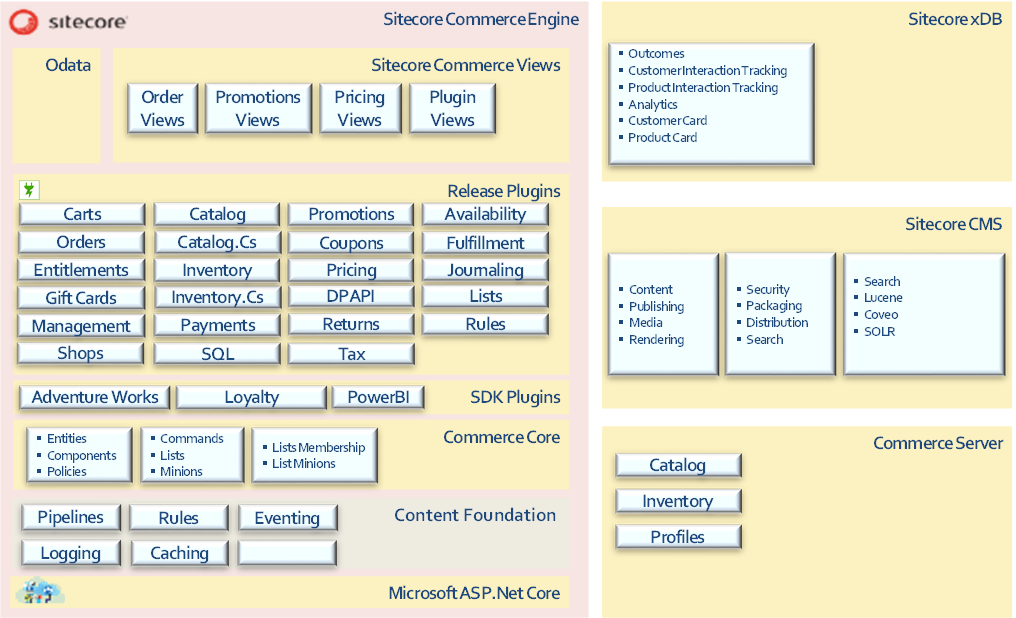Sitecore Commerce Engine
The following diagram presents a more detailed logical architecture, focusing on the Sitecore Commerce Engine.

Sitecore Commerce Engine - A thin ASP.NET Core application that serves as a host for commerce functionality, provided by Sitecore Commerce plugins.
Microsoft ASP.NET Core - The Sitecore Commerce Engine is engineered as a thin ASP.NET Core application that targets the .NET Framework 4.5.2. ASP.NET Core is an open-source and cross-platform framework for building modern cloud-based internet connected applications, such as web apps, IoT apps, and mobile back-ends. ASP.NET Core apps can run on .NET Core, or on the full .NET Framework.
Commerce Core - A set of capabilities around composing, organizing and persisting entities, polices, and lists. Consumed by Commerce plugins to provide specific commerce functionality.
Sitecore Commerce plugin - An independently publishable extension to the Sitecore Commerce Engine, which provides specific commerce functionality. Plugins provide a powerful mechanism to extend commerce functionality, in a way that reduces complexities during upgrades to future releases. Plugins can contribute Models, Components, Entities, Pipelines, Events, Commands, and Lists. Plugins can take a dependency on another plugin in order to extend functionality.
Release plugins - These are needed for the delivered release functionality.
SDK plugins - Optional plugins that are provided in the Sitecore Commerce SDK.
Plugins can be created or extended by Sitecore’s partners and customers to add value and support particular functional scenarios.
OData – Microsoft’s open protocol that allows the simple creation and implementation of RESTful APIs.